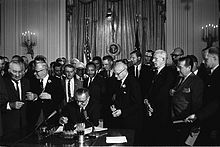“Punting the Pundits” is an Open Thread. It is a selection of editorials and opinions from around the news medium and the internet blogs. The intent is to provide a forum for your reactions and opinions, not just to the opinions presented, but to what ever you find important.
Thanks to ek hornbeck, click on the link and you can access all the past “Punting the Pundits”.
Follow us on Twitter @StarsHollowGzt
New York Times Editorial: Rigged Rates, Rigged Markets
Marcus Agius, the chairman of Barclays, resigned on Monday, saying “the buck stops with me.” His was the first departure since the British bank agreed last week to pay $450 million to settle findings that, from 2005 to 2009, it had tried to rig benchmark interest rates to benefit its own bottom line. [..]
The rates in question – the London interbank offered rate, or Libor, and the Euro interbank offered rate, or Euribor – are used to determine the borrowing rates for consumers and companies, including some $10 trillion in mortgages, student loans and credit cards. The rates are also linked to an estimated $700 trillion market in derivatives, which banks buy and sell on a daily basis. If these rates are rigged, markets are rigged – against bank customers, like everyday borrowers, and against parties on the other side of a bank’s derivatives deals, like pension funds.
Robert Kuttner: Mitigating Merkel’s Mischief
If Europe continues its steady march to financial depression and collapse of the Euro, no politician will be more to blame than German Chancellor Angela Merkel. Last week, Merkel repeated the same pattern that has characterized her behavior since the sovereign debt crisis began — resisting sensible reforms until the costs of delay became overwhelming, and then reversing course 180 degrees only after the damage was far greater than necessary. [..]
Merkel, characteristically, still opposes any respite for the suffering Greeks. It is up to the rest of Europe to isolate her again so that she can reverse course citing changed circumstances. Nor is Merkel willing to seriously rein in the financial speculation against government bonds that turns moderate budgetary problems into dire crisis. This, too, will take the resolve of wiser leaders.
The election of 2012 raises two perplexing questions. The first is how the GOP could put up someone for president who so brazenly epitomizes the excesses of casino capitalism that have nearly destroyed the economy and overwhelmed our democracy. The second is why the Democrats have failed to point this out. [..]
Part of the answer, surely, is that elected Democrats are still almost as beholden to the wealthy for campaign funds as the Republicans, and don’t want to bite the hand that feeds them. Wall Street can give most of its largesse to Romney this year and still have enough left over to tame many influential Democrats (look at the outcry from some of them when the White House took on Bain Capital).
Dean Baker: A Wall Street Gambling Tax: The Remedy to Inequality
As the presidential election builds up steam, the Washington elites in both parties are actively scheming to find ways to cut Social Security and Medicare benefits for retired workers. The media have widely reported on efforts to slip through a version of the deficit reduction plan developed by Morgan Stanley director Erskine Bowles and former Senator Alan Simpson. Since the vast majority of voters across the political spectrum reject cuts to these programs, the Washington insiders hope to spring this one on us after the election, when the public will have no say.
That is the sort of anti-democratic behavior we expect from elites who naturally want to protect their own interests. Of course, the rest of us are more concerned about the well-being of the country as a whole rather than preserving the wealth of the richest 1 percent.
Mark Weisbrot: For Mexicans, It Was the Economy, Stupid
IF ever there were an election preordained as a result of economic performance, it would be Mexico’s election on Sunday. The ruling National Action Party, or PAN, was destined to lose because it had presided over profound economic failure for 11 years. Almost any government in world would have lost under such circumstances.
Commentators, focused on the six-year-old drug war, have largely neglected to note the depth of Mexico’s economic problems. Let’s start with the basics: Since 2000, when the PAN was first elected, income per person in Mexico has grown by just 0.9 percent annually. This is terrible for a developing country, and less than half the rate of growth of the Latin American region during this period – which was itself not stellar. If we just look at per capita growth since the last election, in 2006, Mexico finishes dead last of all the countries in Latin America.
George Zornick: Tea Party Govs Say ‘No’ to Medicaid Expansion
Nearly 1 million Floridians will be denied access to Medicaid they would have otherwise received under the Affordable Care Act if Governor Rick Scott gets his way. The Supreme Court ruling last week on the law made it easier for states to opt out of an expansion, and Sunday night the governor’s office e-mailed a statement from Scott that “since Florida is legally allowed to opt out, that’s the right decision for our citizens.” [..]
But now hospitals in South Carolina and Florida are looking at a rate reduction without the corresponding increase in Medicaid coverage.
Hospital lobbies are always powerful in state politics, and could yet convince state legislators to buck the ideological governors and support an expansion. Combine the big industry money with a powerful narrative about denying coverage to hundreds of thousands of people, plus the diminishing returns of rallying against Obamacare-particularly after the fall elections-and by 2014 it’s possible Florida, South Carolina and other states will end up participating. They’re just going to make a lot of noise first.



 This coming week is supposed to contain an important symbolic Independence Day: the day when the California State Senate votes whether or not to proceed with one strategic element of Energy Independent Transport for the State of California, or whether to gamble the state’s future on petroleum.
This coming week is supposed to contain an important symbolic Independence Day: the day when the California State Senate votes whether or not to proceed with one strategic element of Energy Independent Transport for the State of California, or whether to gamble the state’s future on petroleum.
Recent Comments